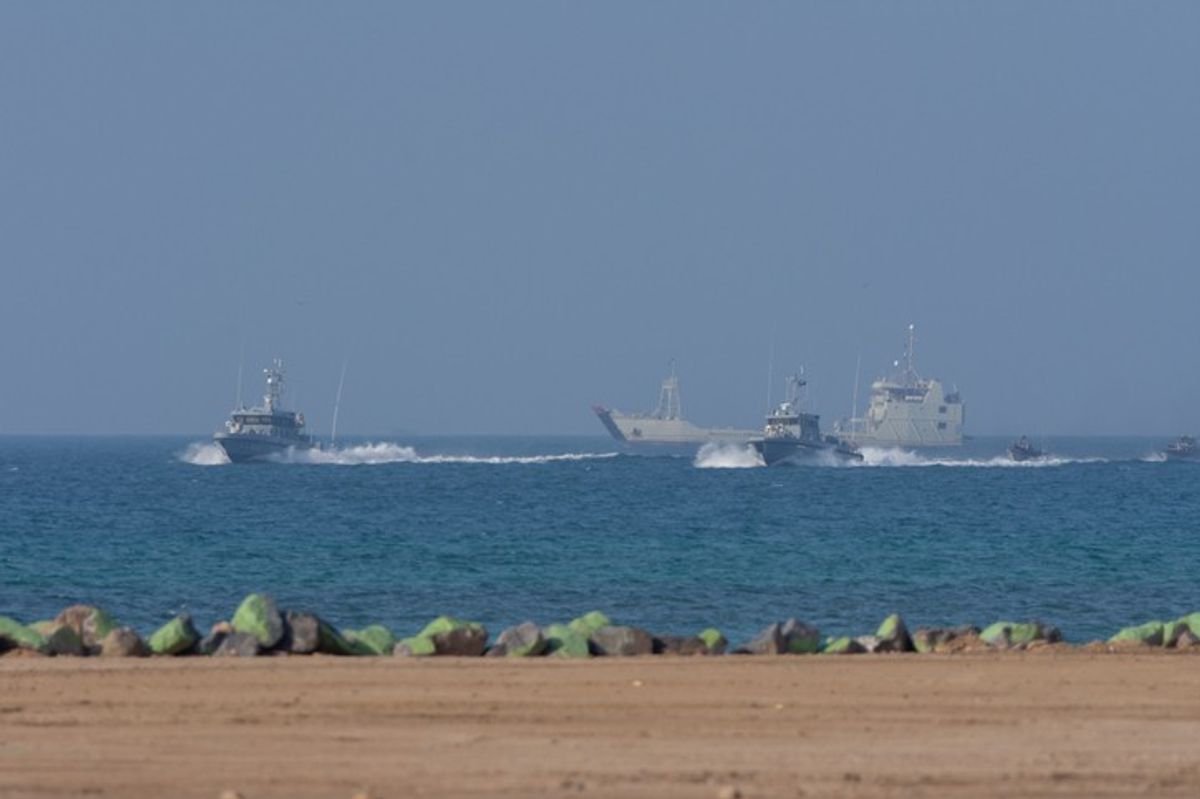Libya’s failure to build a democratic, stable, constitutional, and sovereign government in the wake of the anti-Gadhafi uprisings in 2011 has not been the fault of the United States or any other Western power. Furthermore, the United States never really intervened in Libya, nor did it lead (from behind or otherwise) international efforts to oust President Muammar Gadhafi and stabilize the country in his wake. Rather, international actions were led by France, Qatar, and the UK. They responded to the landmark statement of the Arab League on March 12, 2011 calling for a No Fly Zone over Libya, by supporting a UN resolution (1973) to protect civilians from massacre and the forces of the anti-Gadhafi uprisings from being crushed.
This was not an intervention, nor did nations overstep the UN resolution in pursuit of a covert regime change operation, as Russia and other anti-Western political commentators allege. The aerial support that international forces provided had been requested by the National Transitional Council (NTC) – the umbrella grouping of those anti-Gadhafi rebels who sought to govern a liberated Libya and would later be acknowledged as Libya's sovereign government. The No Fly Zone that came out of UNSCR 1973 – the security council resolution which authorized military action in Libya – was, ipso facto, not an intervention, because it acted exactly in line with the NTC's and the Arab League's invitation and deliberately did not alter the prevailing internal dynamics between the myriad mutually antagonistic rebel groups.
Understanding that we didn't intervene is not an endorsement of American policies towards Libya. It is a statement of fact. In the early post-Gadhafi days, America and our Western allies could have been more forceful in foisting aid and capacity building programs upon the reluctant Libyans. But the stark reality is that they didn't want our help setting up a Truth and Reconciliation Commission or building a defense ministry, and they chose to appease and subsidize the militias against all Western advice.
In choosing to not pressure the NTC to interface with more foreign experts, our policymakers operated under various misconceptions. As always, our generals and diplomats were fighting the last war. Because Western publics were still reeling from the blunders of a big footprint intervention and forced nation-building in Iraq, the major players (Britain, France, Italy, and the U.S.) all chose a small footprint approach to reconstruction in Libya. They chose not to jam capacity-building programs down Libya’s throat after Libyan leadership politely rejected our initial offers.
In the summer of 2012, the Libyan transitional authorities deviated from their initial plans to appoint, rather than elect, a constitutional drafting assembly. It was apparent that Libya might remain in the volatile 'transition phase' for longer than initially hoped. When the transitional authorities allowed militia pressure groups to seize the key government ministries in the spring of 2013 to impose the Political Isolation Law – a decree banning all Gadhafi-era officials from holding public office – it was clear that the mob and their Islamist allies had taken over by stealth after losing at the ballot box. Bizarrely, in both instances, Western powers maintained their hands off approach for fear of being seen to “intervene'” in Libya's internal affairs. This was certainly a mistake, but it was not a flawed intervention or a failure to plan for the day after Gadhafi’s departure. It was bureaucratic entropy—plain and simple.
Libya was clearly coming off the rails and abandoning its liberal post-Gadhafi pronouncements, but who was America to make sure that they were upheld? In the wake of the murder of the American Ambassador Christopher Stevens, the U.S. pulled back all together. Since then, the few attempts at coherent Western action towards Libya have been progressively outsourced to the UN. Unfortunately, the UN first chose an incompetent and polarizing envoy, Tarik Mitri, to implement its policy in Libya. It then found a corrupt and self-serving diplomat in Bernardino Leon. This plus an institutional preference for the status quo has facilitated Western inaction in the face of Libya's downward spiral.
When Libya cleaved into two pseudo-governments, Western foreign ministries continued to recognize the House of Representatives (HoR), instead of the opposition General National Congress (GNC), as Libya's sovereign body due to bureaucratic inertia. However, the HoR was, in effect, a government in exile with minimal local support and no ability to govern territory. That we treated it as our only legitimate interlocutor in solving Libya's problems was a failure to understand who the real stakeholders were. Even after the GNC declared the HoR unconstitutional on November 6, 2014 (its official mandate was meant to end in Fall 2015 regardless), Western governments clung to the fiction that the body was still legitimate and that its approval was needed for any UN-mediated power sharing agreement. This proved to be a key mistake.
And this is where we find ourselves now: waiting for a long-defunct body, with no legitimacy in either Libyan or international law, to amend the Temporary Constitution Declaration of August 2011 in order to legitimize the UN-brokered Government of National Accord (GNA). Unsurprisingly, the HoR is reluctant to vote itself out of existence and to expose that it has long overstayed its mandate. Tragically, this step was entirely unnecessary from either the Libyan or international legal perspective.
That the GNA is gradually rooting itself in Tripoli and engaging in some bottom-up compromises with Libya's stakeholders is a very positive development. Despite being born out of an undemocratic, top-down, imposition by the UN and the international community, the body is fortunately popular with broad swathes of the Libyan public. If the GNA can capitalize on its current honeymoon period, and forge a true consensus of Libya's three or four key non-jihadist militias to tackle the Islamic State, that would be a great boon for the country and for the security of the Mediterranean and Sahel regions.
Yet at present, this looks unlikely. The requisite anti-ISIS consensus of Libya's militias is proving elusive. Currently, the county's most important militias are all pretending to be more pro-Western and more anti-ISIS than their rivals, so as to garner training, armaments, and coordination with Western special ops. In short, a rhetorical race to Sirte has emerged where the main currents in the country are using the fight against ISIS as a means of upstaging each other.
If American and Western policy continues to be guided by this kind of bureaucratic entropy, then ISIS will grow as our allies squabble on the sidelines. Although it is long overdue, bold action on the part of the West to prevent the depletion of the Libyan treasury, to incentivize an anti-ISIS coalition, and to help establish sovereign governance in Libya would be better late than never.













